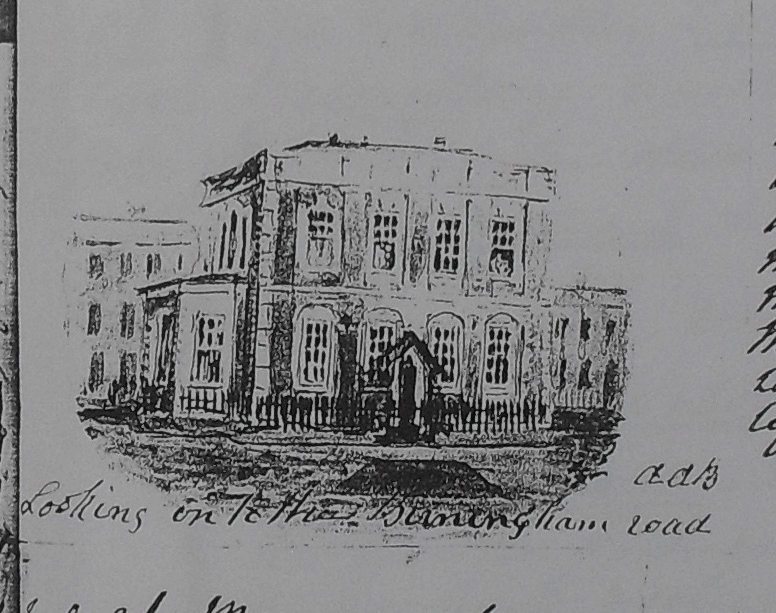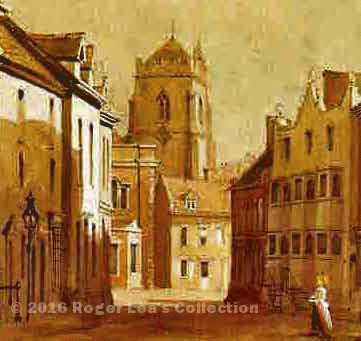The governing body of the Royal Town of Sutton Coldfield, established in 1528, consisted of twenty five men known as the Warden and Society until it was replaced in 1886 by a Mayor and Corporation. Each year on November 2 a new Warden would be elected from among the twenty-five, and whenever a vacancy occurred, the remaining members would choose a replacement. This appeared to be a trouble-free process, Richard Holbeche noted “The Warden was always a gentleman of position and, although everyone knew who was to be elected, it was quite proper to evince anxiety and later surprise.” Richard’s father, Vincent Holbeche, giving evidence at an Inquiry in 1855, said that “all the classes of persons in Sutton Coldfield are represented on that body…elected irrespective of politics… Conservatives, Liberals and the various parties are represented.”
Vincent Holbeche was the Deputy Steward, equivalent to a town clerk, and was keen to paint a picture of peace and harmony within the Warden and Society between the Warden and Society and the inhabitants. This in spite of the fact that the Inquiry had been ordered in response to a petition from the inhabitants requesting a new corporation because of dissatisfaction with the self-elected Warden and Society. The Inquiry Commissioner ruled that there was no need for change, as there had been a review of all the old corporations in the country in 1835 which had exempted Sutton Coldfield from the list of towns needing reform.
Sarah Holbeche, in her diary covering the years from 1820 to 1870, records the election of the new Warden every year without comment, although she strongly disapproved of some of them, no doubt having heard their merits discussed by her Deputy Steward father Thomas and later by her brother Vincent Holbeche. She expressed her own opinion of the Warden in 1865 “Mr. Colmore re-elected Warden - a regular Brumagem party - Sutton represented by Brum.”
Throughout the nineteenth century the minutes of the Warden and Society meetings show that wardens were elected unanimously, but the situation was different in the 1780s. In 1785 there were three candidates, Rowland Mainwaring Esq, getting more votes than Hurdman and Hoo; the next year Mainwaring was elected again in spite of challenges from Whateley and Cary. There were four candidates in 1788, William Cary being the winner. 1792 was an extraordinary year. The candidates were the Rev. John Riland (Rector of Sutton), Mr. Richard Whateley, and Mr. William Kendrick. Riland was elected, but he refused to take office, and was accordingly expelled from the Warden and Society. A new member was then elected to the Society from a list of candidates. The new Warden was then chosen from Whateley, Kendrick and Thomas Milner, Whateley being elected. Mr. Richard Whateley also refused to take office and was ejected from the Society, the consequent vacancy being filled by electing a new member. The meeting then proceeded to the election of a new Warden, William Kendrick and Thomas Milner both being nominated, and Kendrick took office. The minutes simply record this chain of events, so it is not clear whether feelings were running high and members were at loggerheads, or whether this was all a charade so that Bedford and Whateley could retire with honour and make way for new blood.

